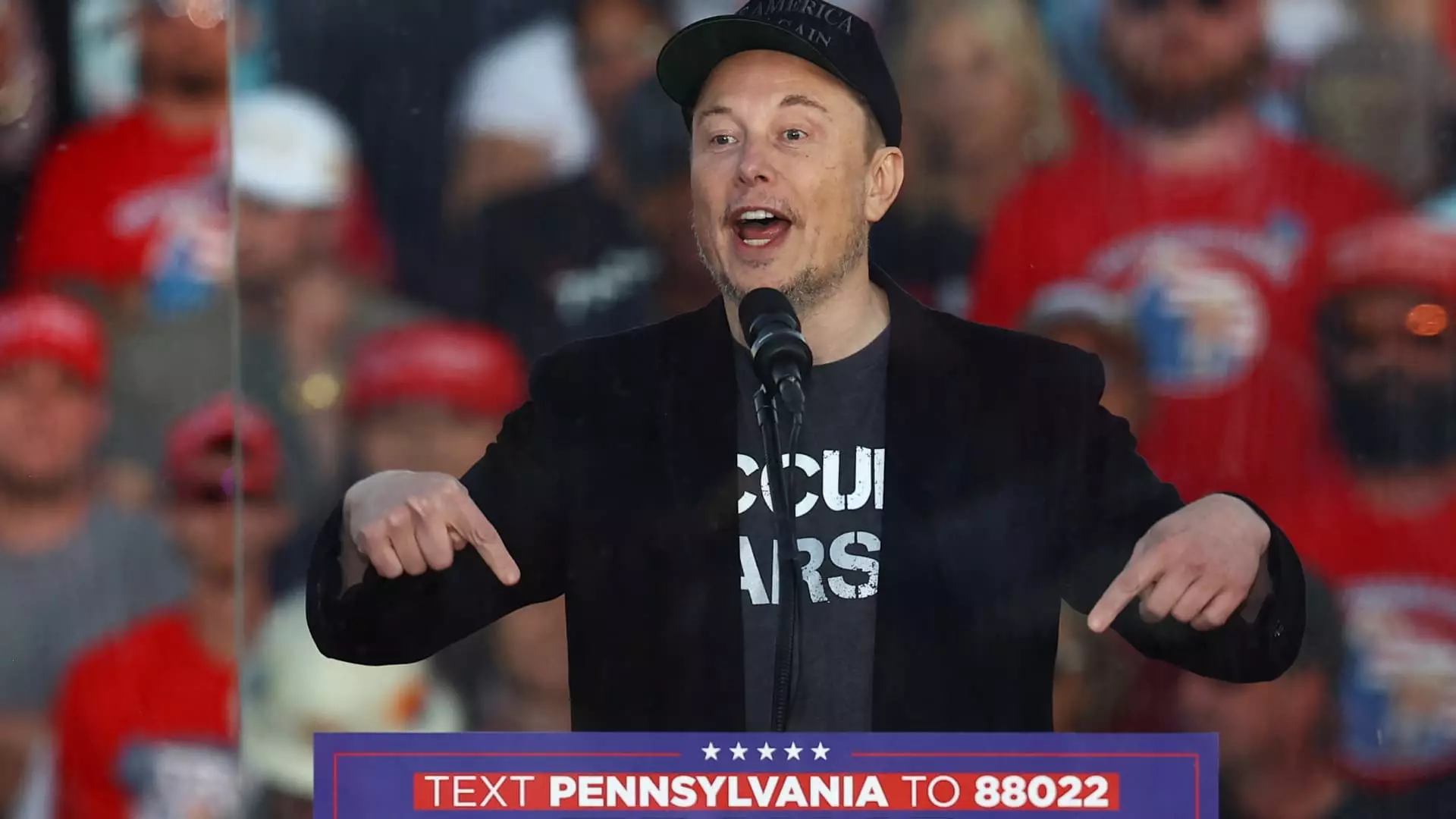In an increasingly polarized political landscape, few figures are as emblematic of the intersection between business and politics as Elon Musk. The CEO of Tesla and SpaceX has recently expressed support for Donald Trump in the upcoming presidential elections, which has drawn both applause and skepticism from various quarters. Whether viewed as a strategic businessman or a celebrity inadvertently impacting democracy, Musk finds himself in the center of discussion, particularly with the announcement of his political action committee’s (PAC) $47 referral bonus aimed at engaging voters from swing states. This initiative raises numerous questions about motives, ethics, and the implications for the electoral process.
Musk’s initiative offers a monetary incentive to individuals for persuading registered swing-state voters to sign an online petition. The appeal hinges on the promise of quick cash: “$47 for each referred voter!” Musk proclaimed, framing it as “easy money.” The structure of this campaign not only establishes a financial motive for participation but also capitalizes on the network effect of social media, where Musk’s platform, X, is utilized to maximize reach. However, the petition itself is strikingly vague, omitting critical details that are usually present in civic engagement efforts, such as the intended recipient of the petition or the specific demands of its signers.
This lack of transparency raises questions about its true purpose. While the petition purports to support “First and Second Amendment rights,” it does not convey what actions would be pursued following its submission. Instead, it demands personal contact information from participants, effectively transforming a petition into a data collection exercise.
The PAC’s aim to gather a million signatures from key battleground states – Pennsylvania, Georgia, Nevada, Arizona, Michigan, Wisconsin, and North Carolina – underscores the tactical importance of these regions in shaping electoral outcomes. These states are often described as pivotal in presidential races and have been the focus of intense campaigning by both major parties. Musk’s choice to spotlight these areas indicates an understanding of their electoral significance but also points to a potential exploitation of voter engagement mechanisms for partisan gain.
Moreover, the apparent previous controversies surrounding the PAC—including prior investigations related to its tactics for gathering voter information—suggests a pattern of operating in ethically gray areas. Musk’s involvement raises further concerns, as he is often seen as a figure undeterred by conventional boundaries, perhaps indicating a broader trend of leveraging personal brand influence in politics.
The ethical implications of this referral program cannot be overlooked. Offering financial rewards for political engagement could compromise the integrity of the electoral process by incentivizing participation for the wrong reasons. It risks turning civic duties into transactional relationships, whereby individuals are more motivated by the prospect of cash than by a genuine commitment to democratic values. Such initiatives can potentially lead to disillusionment among voters who may feel their involvement is being manipulated for financial gain rather than genuine civic interest.
Additionally, the vague nature of the petition—focusing primarily on contact collection rather than meaningful advocacy—highlights concerns about data privacy in a highly surveilled digital age. The enticement of money for sensitive personal information poses threats of exploitation, especially in a political context where disinformation and mistrust are rampant.
As we move closer to the upcoming election, the intersection of technology, business, and politics is more significant than ever. Musk’s efforts to merge these realms through controversial strategies set a precedent that could fundamentally alter the nature of political engagement. While his initiative may attract attention and participation in the form of signatures, it also invites serious scrutiny regarding its ethical implications and long-term effects on democratic processes. The future of political mobilization may very well hinge on how much further such monetized methods proliferate, as the lines between advocacy, engagement, and economic incentive continue to blur.


Leave a Reply